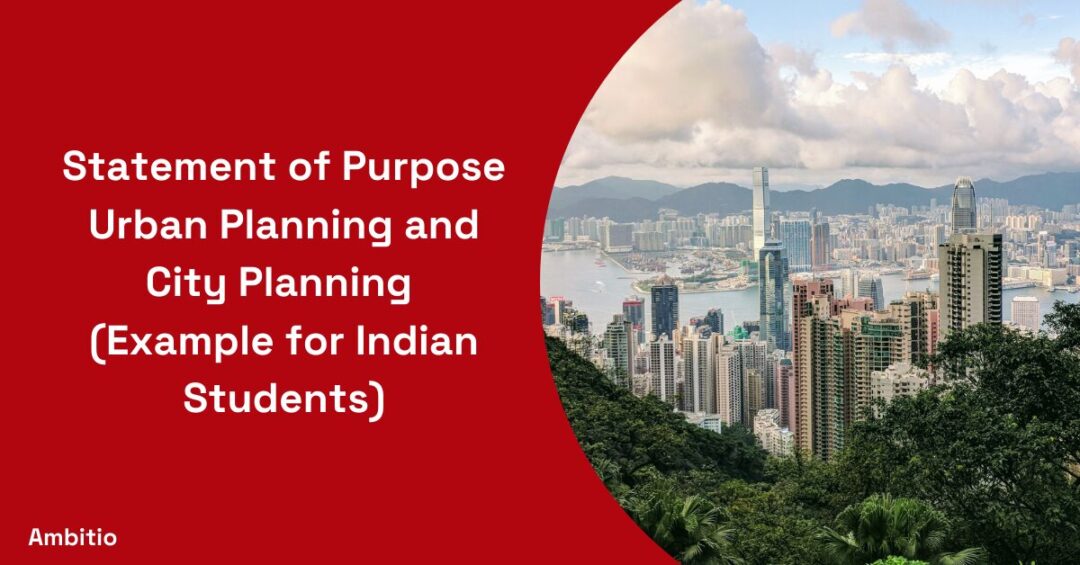13 December 2024
5 minutes read
Crafting a Winning Education PhD Statement of Purpose

Applying for a PhD in Education is a significant step in an academic career. The Statement of Purpose (SOP) is not just a requirement; it’s a pivotal piece of your application that can set you apart from other candidates.
Often referred to as the SOP for Ph.D. or personal statement, this document allows you to articulate your academic and professional journey, research interests, and future aspirations.
Unveiling the Significance of a Statement of Purpose in Your PhD Application
The SOP is more than a formal document; it’s a unique opportunity to tell your story and demonstrate why you are an ideal candidate for a Ph.D. program. It serves as a window for the admissions committee to understand your motivations, your academic and professional accomplishments, and your vision for the future.
The Role of the SOP in the Admissions Process
The Statement of Purpose (SOP) plays a pivotal role in the admissions process for a PhD in Education. This document is more than just a formality; it is a critical tool that helps admissions committees understand who you are, what has shaped your academic journey, and how you align with their program. Here’s a closer look at the various aspects that highlight the importance of the SOP in the admissions process:
- Narrating Your Academic and Professional Journey: The SOP allows you to narrate your academic and professional experiences. Unlike a resume, which lists your achievements, the SOP lets you weave a story around your milestones, explaining the motivations and the learnings you derived from each experience.
- Demonstrating Research Interest and Alignment: For Ph.D. programs, particularly in fields like education, demonstrating a clear and focused research interest is crucial. The SOP is your opportunity to articulate your research goals, how they developed, and how they align with the faculty and resources of the program you are applying to.
- Showcasing Your Personality and Motivation: While grades and test scores are important, they don’t convey your personality or motivation. The SOP gives a human touch to your application, presenting you as more than just a set of numbers. It allows the committee to understand your passion, dedication, and the driving forces behind your decision to pursue a PhD in Education.
- Highlighting Unique Traits and Perspectives: Each applicant brings a unique set of skills, experiences, and perspectives. The SOP is your platform to highlight these differentiators. It’s where you can argue why these unique traits make you an ideal candidate for the program and how you can contribute to the academic community.
- Communicating Future Goals and Aspirations: The SOP is not just about where you have been; it’s also about where you plan to go. Outlining your future goals and how a Ph.D. from the specific program will aid in achieving them is a key aspect of the SOP. This forward-looking perspective demonstrates planning, ambition, and clarity of purpose.
- Reflecting Writing and Communication Skills: Effective communication is vital in academia. The SOP serves as a testament to your writing ability, critical thinking, and clarity of expression. A well-written SOP can impress upon the admissions committee your capability to undertake rigorous academic research and contribute meaningfully to scholarly discussions.
Starting Points: Laying the Groundwork for Your Education PhD SOP
Before diving into the writing process, it’s crucial to understand what makes a compelling SOP. It’s not just about stating your desire to pursue a Ph.D. in education; it’s about presenting your experiences, interests, and goals in a narrative that aligns with the program you are applying to.
Researching and Tailoring Your SOP
Begin by researching the program and its faculty. Understand the research areas, ongoing projects, and the overall ethos of the department. Tailoring your SOP to reflect how your interests align with the program’s strengths will demonstrate your dedication and suitability for the program.
Constructing Your Statement: Key Elements to Include
Your SOP should be a comprehensive yet concise document that reflects your academic journey and future aspirations. The key is to balance personal anecdotes with professional achievements and academic interests.
Crafting an Engaging and Informative Narrative
Your SOP should start with a compelling introduction, then delve into your academic background, professional experiences, research interests, and how the Ph.D. program aligns with your career goals. Use clear, direct language and ensure each section seamlessly transitions to the next, maintaining a cohesive narrative throughout.
The Structure of an Effective Education PhD SOP
A well-structured SOP guides the reader through your story, ensuring that each component is given adequate attention and presented logically.
A Sample Structure for Clarity and Impact
- Introduction: Start with a hook that captures your passion for education.
- Academic Background: Detail your undergraduate and graduate studies, highlighting any relevant coursework, projects, or research.
- Professional Experience: Discuss any teaching or educational roles you have undertaken and how they have prepared you for a doctoral program.
- Research Interests: Explain your specific research interests and how they align with the program and its faculty members.
- Conclusion: Summarize your goals and reiterate why the program is the right fit for you.
Expert Tips for Writing a Compelling SOP
Writing an effective SOP requires careful planning and attention to detail. It’s about finding the right balance between personal anecdotes and professional accomplishments.
Best Practices in SOP Writing
- Focus on Clarity: Your SOP should be easy to read and understand.
- Be Authentic: Reflect your genuine interest and passion for the field.
- Customize for Each Application: Tailor your SOP for each program you apply to.
- Proofread and Edit: Ensure your SOP is free from grammatical errors and flows smoothly.
Common Mistakes to Avoid in Your SOP
Even with the best intentions, there are pitfalls you should be wary of when crafting your SOP.
- Writing a Statement of Purpose for a Ph.D. in Education:
- A meticulous process requiring attention to detail.
- Understanding what admission committees look for is key.
- Avoid common traps that weaken the SOP.
- Avoiding Generalizations and Vague Statements:
- Use specific language to articulate interests, experiences, and goals.
- Provide concrete examples to demonstrate passion.
- Tailor SOP to reflect unique journeys and specific interests in education.
- Overlooking the Balance between Personal and Professional Aspects:
- Include both personal motivations and professional achievements.
- Balance personal anecdotes with professional experiences.
- Weave together personal and professional narratives.
- Neglecting the Importance of Research Focus:
- Clearly articulate research interests and their alignment with the program.
- Research program and faculty to tailor interests.
- Explicitly mention the alignment of interests with program offerings.
- Failing to Highlight Unique Qualifications:
- Showcase unique qualifications beyond listing achievements.
- Highlight specific skills, experiences, and perspectives.
- Explain how these qualifications make a strong fit for the program.
- Ignoring the Flow and Structure of the SOP:
- Ensure SOP has a logical flow and cohesive structure.
- Pay attention to transitions between sections.
- Maintain a clear introduction, body, and conclusion.
- Overlooking the Importance of a Strong Opening and Conclusion:
- Start with a compelling hook to engage the reader.
- Conclude strongly, reiterating enthusiasm and suitability for the program.
- Underestimating the Impact of Writing Quality:
- Reflect on communication skills through writing quality.
- Avoid grammatical errors, typos, and unclear statements.
- Proofread multiple times, and seek reviews from mentors or editors.
Steering Clear of Common Errors
- Avoiding Vague Language: Be specific about your interests and experiences.
- Not Being Concise: Keep your SOP within the recommended length.
- Overlooking the Importance of the Introduction and Conclusion: These sections should be engaging and summarize your key points effectively.
The Final Touches: Reviewing and Refining Your SOP
The final step in the SOP writing process is to review and refine your document. This involves getting feedback, revising your content, and ensuring that your SOP is polished and professional.
Ensuring Your SOP is Application-Ready
- Seek Feedback: Have mentors or peers review your SOP for clarity and impact.
- Revise and Refine: Incorporate feedback and make necessary adjustments.
- Final Proofreading: Ensure your document is error-free and professionally presented.
Conclusion: Your SOP as a Gateway to Your PhD Journey
In conclusion, a strong statement of purpose for your Ph.D. in Education application is your chance to make a compelling case for why you should be accepted into the program.
It’s a blend of your personal narrative, academic achievements, and future aspirations. A well-crafted SOP sets you on the path to achieving your educational and professional goals.
FAQs
How long should my education PhD SOP be?
The ideal length of an SOP for a Ph.D. program in education ranges between 500 to 1000 words. It’s important to be concise yet comprehensive.
Can I include personal anecdotes in my SOP?
Yes, personal anecdotes that are relevant to your academic journey or research interests can make your SOP more engaging and personal.
Should I mention specific faculty members in my SOP?
Yes, mentioning faculty members whose research interests align with yours can demonstrate your knowledge of the program and your alignment with its goals.
Is it necessary to have my SOP professionally written?
While not necessary, professional writing services can provide valuable assistance. However, it’s crucial that your SOP remains authentically your voice.

You can study at top universities worldwide!
Get expert tips and tricks to get into top universities with a free expert session.
Book Your Free 30-Minute Session Now! Book a call now




























